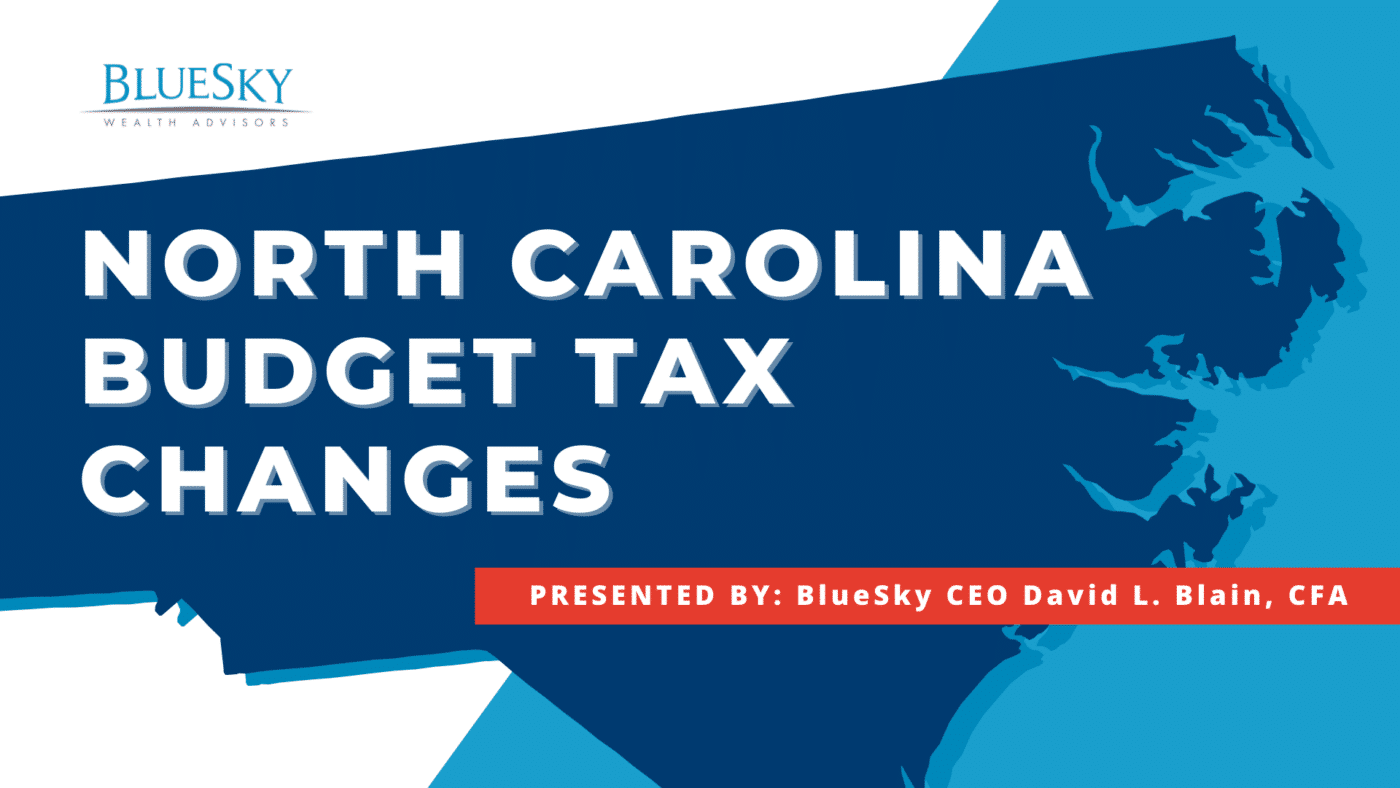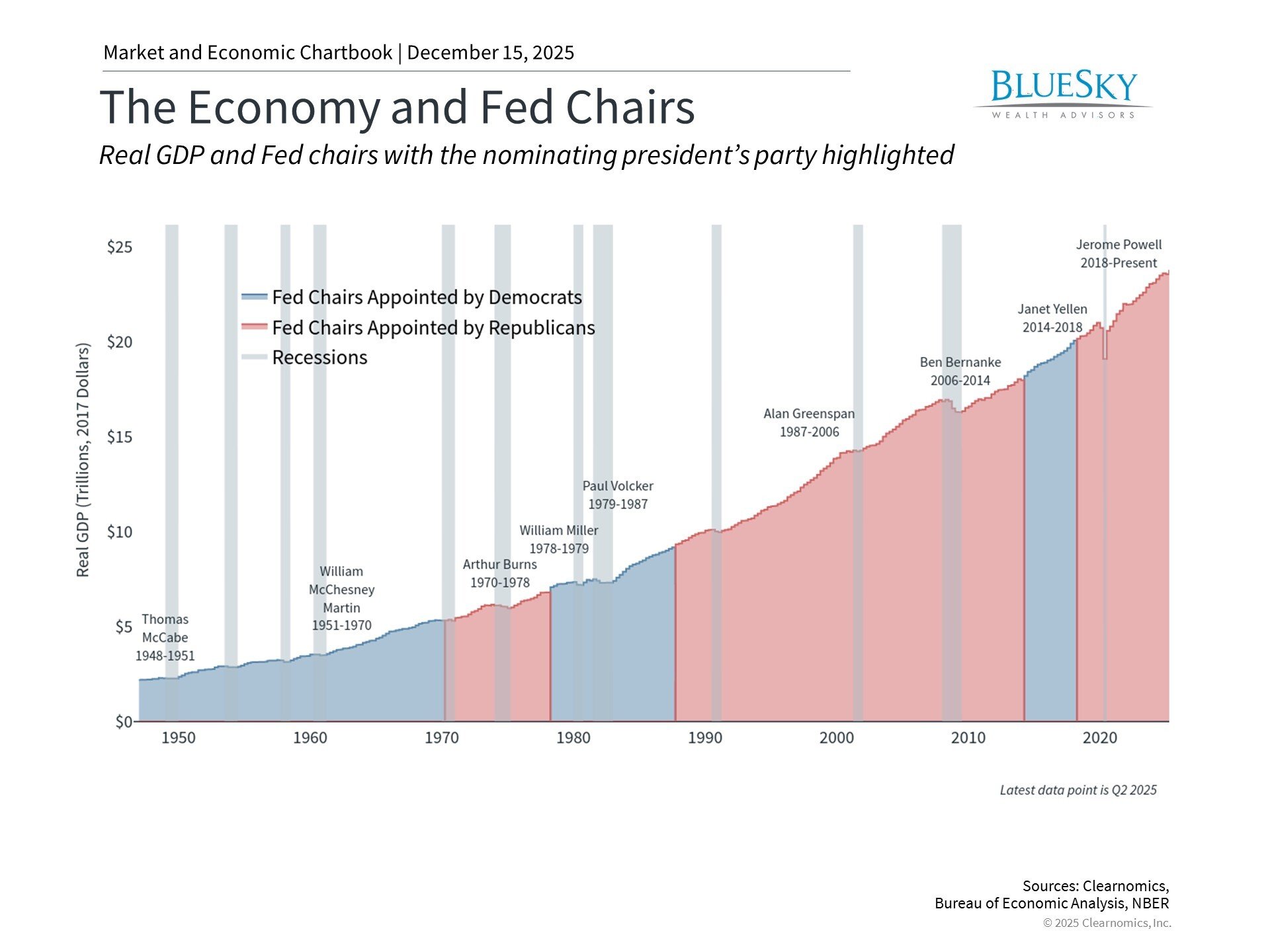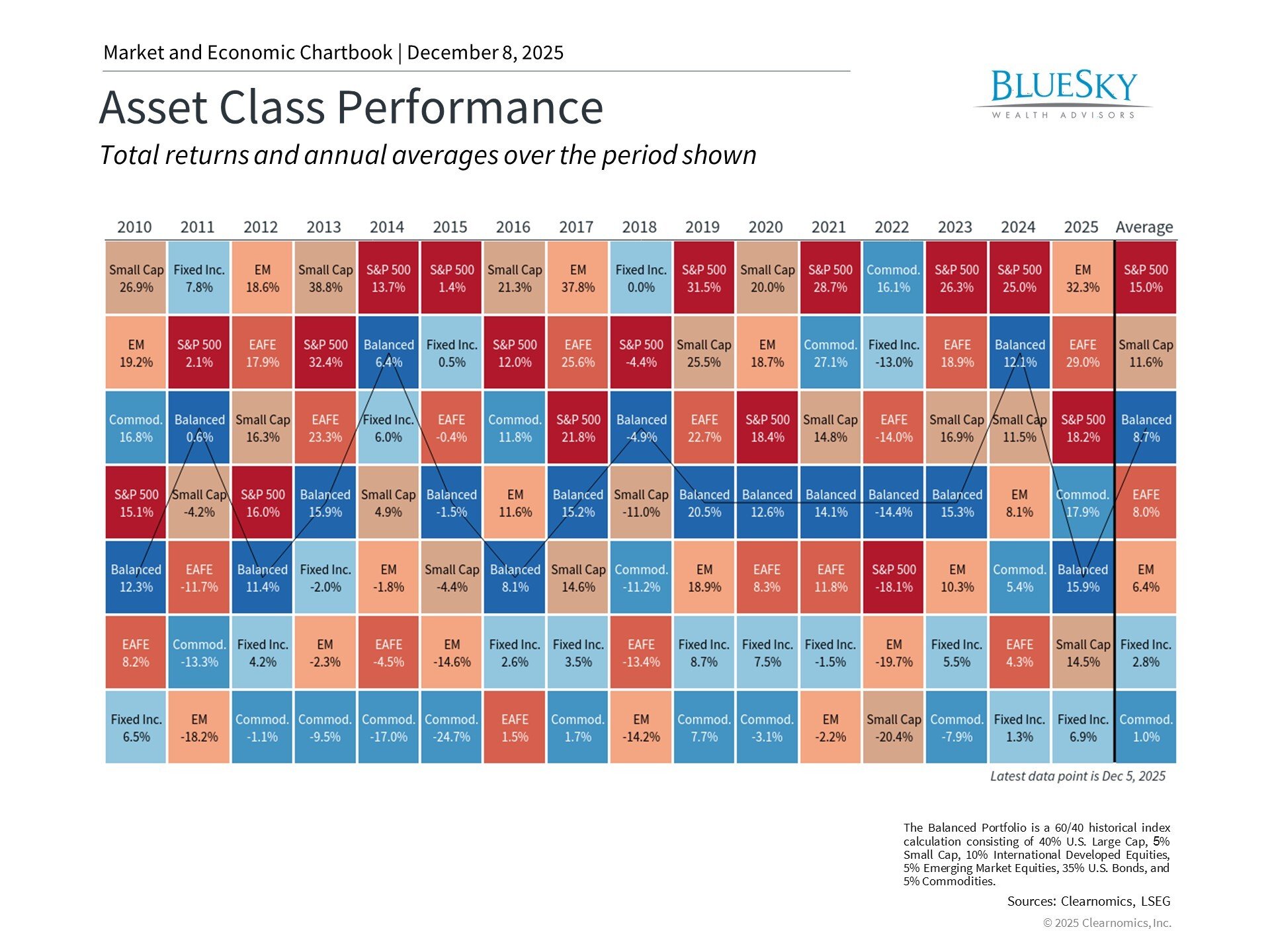
2022-23 NC BUDGET TAX CHANGES W/DAVID L. BLAIN, CFA
2022-23 NC BUDGET TAX CHANGES W/DAVID L. BLAIN, CFA

David L. Blain, CFA, is the Founder and CEO of BlueSky Wealth Advisors, and author of “Invest in Your Life, Not Just Your Portfolio.”
On November 18, 2021, North Carolina released the budget and tax changes for the state. In a companion piece to his review of the Build Back Better Act, David L. Blain, CFA, breaks down the NC budget, addressing the changes and bringing clarity to what these updates mean to North Carolina residents and businesses over the next several years.
https://player.vimeo.com/video/651294435Highlights:
0:00 – 0:44 | Introduction
0:45 – 2:37 | Updates to the North Carolina Tax Code: Now Conforms to Paycheck Protection Program Loan Forgiveness
2:38 – 3:06 | North Carolina Individual Income Tax Rates
3:07 – 5:12 | North Carolina Corporate Tax Rates: Eliminated in 2030 & Franchise Tax Now Based on Net Worth, SALT Work-Around in 2022
5:13 – 6:39 | Exemption for Military Pensions Effective Retroactively January 1, 2021
6:40 – 7:10 | Summary of Smaller Changes, Business Recovery Grant Programs, Etc.
7:11 – 7:51 | Closing Summary
Transcript:
Hello again. David Blain, CEO of BlueSky Wealth Advisors. In this video, I’m going to make a companion piece to the federal tax update that I just did. This one will be specifically focused on North Carolina. So if you don’t pay North Carolina taxes or don’t live in North Carolina, you can listen. Maybe you’ll learn something. But this only applies to North Carolina.
So on November 18th, North Carolina finally passed a new budget, and Governor Cooper signed it. In it, they made a couple of changes, some very significant changes, to the tax regime in this budget. So I want to go over those with you here today.
First of all, most significantly, North Carolina now conforms to the Paycheck Protection Program loan forgiveness. So if you don’t know what this is, during COVID, the federal government gave out paycheck protection loans, and they were deemed non-taxable for federal income, but you could deduct the expenses. So it was a really good deal.
Well, a lot of states, North Carolina included, had to update their tax law because they don’t automatically conform to federal tax law. So North Carolina finally got around to doing this. So if you filed your 2020 taxes, you were not allowed to exclude from income the amount that you received as a paycheck protection loan. Well, this bill fixes that.
So, how are you going to fix it? Probably be an amendment. We’re hoping that North Carolina comes out with some easy fix, a streamlined fix. But the bottom line is, if you filed your 2020 taxes, or 2021 for that matter, and included the amount of the paycheck protection loan forgiveness amount in your North Carolina income, you will be able to rectify that situation and you will not be taxed on that at some point.
They also decoupled from the federal charitable deduction limits the meals and entertainment, which is a hundred percent deductible under federal. North Carolina did not follow that. As well as the unemployment benefits excludable from federal income are not excludable from the state. So those are some minor things. The big one is that it does now conform to the federal paycheck protection loan forgiveness program.
All right, so North Carolina individual income tax rates. 2021, we’re at five and a quarter percent. That is going to drop to 3.99% starting in 2026. So it’s going to go through a phase. 2022, starting next year, it drops to 4.99, then 4.75, then 4.6, 4.5, and then ultimately 3.99 in 2026. Likewise, the corporate tax rate is actually eliminated starting in 2030. So right now it’s 2.5% through 2024, and then it will gradually start stepping down and be eliminated in 2030. The idea hopefully there, we can begin to better compete with some of the tax-free corporate states. North Carolina already does a pretty good job of attracting businesses, but this will make it even more business-friendly.
Another small business change, the franchise tax computation is changing to where it’ll only be based on a net-worth base. Doesn’t apply to a lot of people, but for those of you that pay North Carolina business tax, it’s kind of important. That was always a complicated calculation. I alluded to in my federal tax update that North Carolina also passed what I call the workaround to the SALT limitation.
Now, what does that mean? You are limited to $10,000 of state and local income tax deduction on your federal tax return. Well, the states have been getting creative, and what they’ve done is they have allowed business owners of pass-through entities, S corps, LLCs, partnerships, that sort of thing, to elect to pay the tax at the corporate level.
So, if let’s say your business had a hundred thousand dollars of income and your tax was $5,000, if you passed that through to the shareholder and they filed on their personal tax return, if all of their state and local taxes were more than 10, they would not get a deduction for that. So what the states are allowing you to do is take that $5,000 tax bill that’s attributable to your business income and pay it from your business. That way it is fully deductible. And so, effective in 2022, North Carolina will allow you to do this. So that’s a good one for business owners.
There’s also an exemption now for military pensions. For those of you familiar with the Bailey settlement, this was a very confusing provision that excluded workers vested in a North Carolina retirement plan or federal plan prior to 1989. Well now, it will permit military retirees with at least 20 years of service or who are medically retired to exclude their military retirement pay from income. And this is fantastic. This is a great, great law that they’ve passed. It also exempts the spouse, when the service member dies and that money now goes to the spouse, which will also be free of income tax. And this is effective retroactive to January 1, 2021.
So great news for the military. As you may or may not know, North Carolina has a ton of military bases. Fort Bragg, where I was stationed for many, many years. Seymour Johnson Air Force Base in Goldsboro. Of course, Camp Lejeune in Jacksonville, and Cherry Point, right down the road from where I live in Havelock. And I know there’s other bases throughout North Carolina, but those are big ones right around where I live. So this will mean a lot for those retirees who like to stay in North Carolina, and this will make it very, very competitive for those retirees.
So those are the big changes. There’s a whole host of other things. Rehabilitation credits. If you rehabilitate a mill in North Carolina and spend at least $3 million, there’s a federal tax credit. There’s also some business recovery grant programs. It’s fairly limited, but there is a new for businesses that were impacted by COVID. If you got questions on that, let us know.
So just to recap some of the big things. Of course, the PPP loan forgiveness conformity, that’s huge. The reduction in individual tax rates. The elimination of the corporate tax rate. The ability to work around the SALT limitation. Although if the federal law changes, it won’t be such a big one. And then finally, the exemption of military income from state taxes.
So those are some of the highlights of the North Carolina budget bill that just passed. If you got any other questions on that, please let us know. Contact your advisor and we’ll walk through those changes with you.
Would you like to hear more from David L. Blain, CFA? Check out more blogs below:
Market Update: Inflation – Rising Rate Here to Stay?
GameStop Stock Frenzy with BlueSky CEO and Founder David L. Blain, CFA
Elite military Service to Successful Business Owner with CEO David L. Blain, CFA





